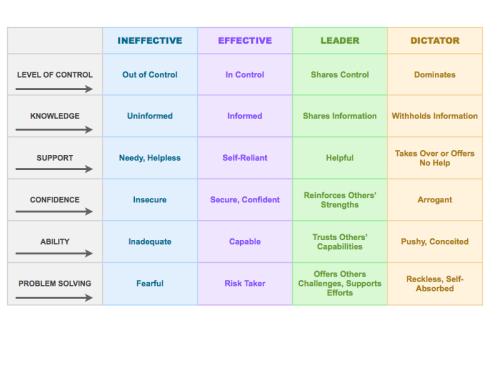You may carry the title of a Senior Manager and yet struggle to truly get work done through others in a way that propels the team forward.
You may have the experience and authority to get compliance and yet fail to earn true commitment from the people on your team.
If you haven’t quite reached the rung of leadership in your ascent to your position, it may be because you are clinging to old, familiar behaviors that have served you well in the past. This is a common career staller for managers and even senior managers who are technically proficient and brimming with business acumen. You see, it may be all that success and ability that is holding you back from truly leading.
It’s true that what got you here won’t get you there. In your career thus far, you have been able to excel as an individual. You have been effective in so many ways by controlling outcomes single-handedly and by being self-reliant. You have been effective, so the need to make changes in order to break through to leadership may not be apparent to you.
Leadership inherently requires letting go of the control and enabling others to do the work. Trusting others, getting out of their way, involving them in decisions, supporting them from the sidelines and being transparent in sharing may not come easily to a high achiever who has been effective, perhaps even wildly successful, along the way to leadership.
There does come a time, though, when you will outgrow your individual effectiveness. No matter how well it has served you in the past, in the role of a senior manager you must take the long-term view to develop others and to equip them for doing the work without you. Every minute you spend doing the technical work and staying in the thick of things is a minute wasted.
Your time is better spent at this stage of your career in strategic planning, coaching other managers, developing people by delegating work to them and other work that necessitates stepping back.
Here’s a tool to help you evaluate the ways you may be hindering your team and limiting yourself by doing what you’ve always done.
The Difference Between an Individual Contributor & a Leader

This diagram continuum of personal effectiveness illustrates the six areas where many leaders like you go astray.
Each row represents one of six ways you can evaluate yourself and determine if your behavior indicates that you are effective as an individual contributor or have made the essential transition to being a leader.
The outer columns are included to show the extremes. If you find yourself being ineffective, it means you have never mastered an area of effectiveness as an individual contributor. This does not bode well for you or your team when you become a leader. This warrants coaching support and immediate attention. Conversely, if you find yourself in the column labeled “dictator,” you should also consider seeking support to modify these behaviors. They are destructive to a team and absolute career killers for a leader.
If you are stuck in any of those orange or blue boxes, check your confidence level and what is driving it so low. The behaviors in both extremes are generally linked to low self-esteem or a misunderstanding about the difference between leadership and power.
Both columns in the middle are noteworthy. If you are able to be in the boxes that fall in the purple or green columns, you can give yourself a well-deserved pat on the back. There is no shame in being effective.
The question for you to answer is this: Are you satisfied being an individual contributor or do you want to be seen as, treated as, followed as a leader? You simply can’t and won’t be a leader until you push yourself outside the comfort zone of “effective” and into the six behaviors shown here for leaders.
If you are unable to make this shift on your own, the good news is that there is a plethora of resources available to you. Executive coaches help many, many people in your same situation. Good coaches take what you already know and do, and help you extend your strengths to cross this divide. Leadership development programs, especially those with team project work that require the leadership role to be shared, may also help you develop these new behaviors and skills.
It all starts with an honest self-assessment and an openness to push yourself toward leadership. Assessment leads to awareness. Awareness, hopefully, leads to a desire to do something about the gaps. You and your team deserve no less.
 Written by Deb Calvert, President, People First Productivity Solutions-Author of the DISCOVER Questions book series, Deb has worked as a sales productivity specialist and sales researcher since 2000. She is certified as a Master Sales Coach, Master Trainer, and host of CONNECT! an online radio show for selling professionals where listeners ignite their selling power in just an hour. Deb helps companies to boost productivity through people development. This work includes leadership program design and facilitation, strategic planning with executive teams, team effectiveness work, and performance management program design.
Written by Deb Calvert, President, People First Productivity Solutions-Author of the DISCOVER Questions book series, Deb has worked as a sales productivity specialist and sales researcher since 2000. She is certified as a Master Sales Coach, Master Trainer, and host of CONNECT! an online radio show for selling professionals where listeners ignite their selling power in just an hour. Deb helps companies to boost productivity through people development. This work includes leadership program design and facilitation, strategic planning with executive teams, team effectiveness work, and performance management program design.
About ManagingAmericans.com
Organizational Strategy & Teambuilding Tools for Business Leaders & Managers- helping leaders achieve profitable results w/ fewer resources & happier employees. Our well-rounded business content is designed for leaders & managers to implement change with ease & improve accountability amongst their teams.